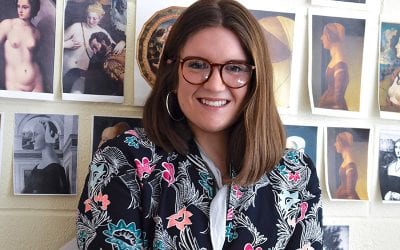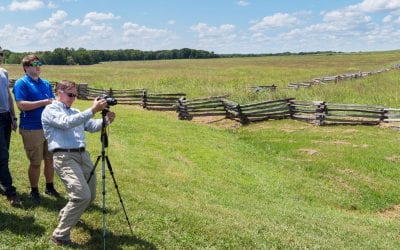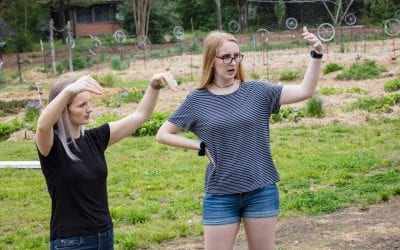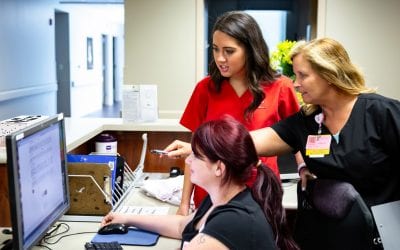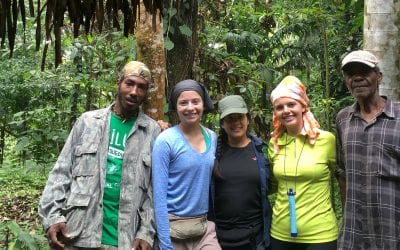
“Ultimately, my career objective is to help companies do business and exchange products and ideas between Asia and the West.”
Market Entry Masala
By Samantha Kirby
Top Photo: Whit Pruitt
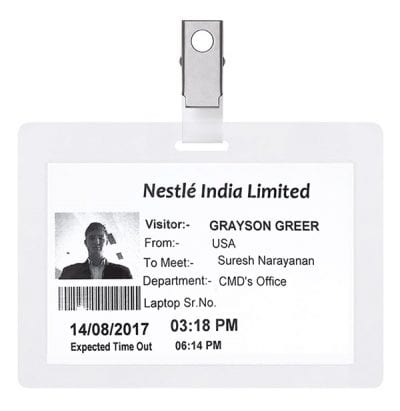 Nine cities. 14 days. 23 meetings. It’s an eye-popping schedule, but for accounting and finance major Grayson Greer, it was a bold way to jump-start research on his honors thesis. He designed the two-week trip to India himself, intent on identifying a unified strategy for entering the Indian food and beverage market.
Nine cities. 14 days. 23 meetings. It’s an eye-popping schedule, but for accounting and finance major Grayson Greer, it was a bold way to jump-start research on his honors thesis. He designed the two-week trip to India himself, intent on identifying a unified strategy for entering the Indian food and beverage market.
In another gutsy move, Greer sent out more than 100 cold emails and LinkedIn messages before the trip, many to the CEOs of large multinational corporations. He only received eight replies, but more than half were from the CEOs themselves, resulting in on-site interviews with the heads of PepsiCo, Coca-Cola, Starbucks and Nestle India, along with other high-level directors, government officials, manufacturers and consumers.
Greer says that while hitting the books is important, sometimes humans can be a researcher’s most valuable source. “Never be afraid to meet people,” he advises. “While these CEOs benefit my research now, they are also potential contacts for the future, to help someone else.”
These interviews helped Greer realize that his initial mission was too reductive: “It’s not so much the strategy you use,” he says, “but a scorecard of different factors that a company has to balance when entering the Indian market. Companies should focus on five or six key things to really understand how to position themselves.” The ways in which each company delivers on this scorecard are unique.
The first of these factors for success, Greer says, is modifying one’s product to fit local sensibilities, which is a tall order in a country as culturally diverse as India. He emphasizes this mindset by quoting CEO of Pizza Hut Unnat Varma, whom he interviewed during his trip: “Think global, act local.” Pizza Hut translates this conventional wisdom into pies that will suit local palates, with flavors such as masala chicken.
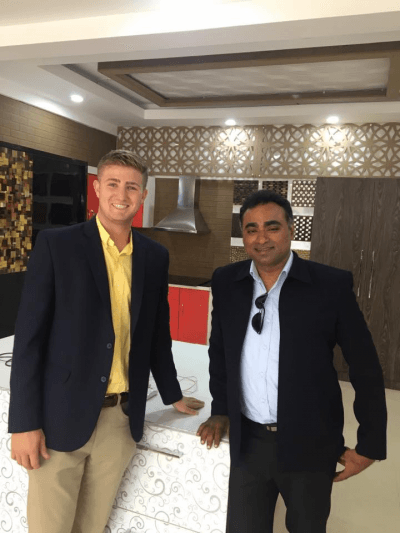
Grayson Greer met with Gopinath L. (preferred name), the CEO of United Traders, a company in Bangalore, India, that brokers trade deals between Indian companies and the West.
Other determining factors for market-entry success include having a social commitment to the community, finding the right local partner for joint ventures and planning for the long game, rather than short-term success. “India is not a short-term cash cow,” Greer says. “Something for companies to realize when entering India is that it’s a long-term commitment to understanding the Indian market, following after consumers and really taking the responsibility required to succeed in the market.”
Greer is certainly in it for the long game. His research evolved out of an initial interest in nonprofit management following another self-designed trip to India in summer 2016. He had originally intended to evaluate the ratio of overseas funding to the domestic impact of this support, but an internship at Roberts Law Firm in Little Rock one year later prompted Greer to change the focus of his thesis from Indian nonprofits to the food and beverage industry: “I realized that I really wanted to understand market entry strategy, and everyone has access to this industry,” he explains. “These are things that Indians use on a daily basis.”
And this consumer base is growing. By 2030, India is predicted to have the largest population in the world, and corporations that succeed in the Indian market within the next few years will be in an advantageous position as the population shifts. During this growth, Greer hopes to remain in the thick of things. After graduating last May, he accepted a job offer from First Rate, a Texas-based performance auditing company. Following six months in the states, Greer will return to India to help expand the company’s business network in Hyderabad, before heading to law school in the fall of 2019. “Ultimately,” he says, “my career objective is to help companies do business and exchange products and ideas between Asia and the West.”
Greer certainly has the diplomatic instincts required for just such a mediating role. During his most recent trip to India, he found himself sitting across a table from executives of both Coca-Cola and PepsiCo, who had gathered to discuss their collaborative social commitment to improving India for the future. “On a table with food and refreshments, they had a mix of Pepsi products and Coca-Cola products. The head of the Indian Beverage Association asked what I wanted to drink, and I was like, ‘I’ll take one of each.’”
More Field Notes Stories
Reading Renaissance Portraits
Clio Rom links Petrarch’s poetry with static, idealized profile portraits. Neoplatonic philosopher Marsilio Ficino, who believed that looking into a woman’s eyes could inspire a divine frenzy, may have prompted the shift to three-quarter views. Here, Rom walks us through three portraits that signify a sea change in Renaissance art, literature and philosophy.
Civil War Meets Mid-Century Modern
Built in 1956 as part of the “Mission 66” federal initiative to modernize national parks, the overlook at Pea Ridge Military Park affords stunning views of a battlefield where the Union army won a decisive victory over Confederate forces. But the mid-century modern structure, still pleasing to 21st-century tastes, landed on a historically sensitive site.
Hydroponic Profits
Honors students Sarah Gould and Laura Gray stand between two wooden stakes embedded in the ground at local community garden Tri Cycle Farms. Today the empty space holds a vision: a greenhouse for hydroponically grown vegetables that will generate profits, and a sustainable future, for the farm. Gould and Gray’s honors theses in biological engineering will help transform this vision into reality.
A Champion for Cultural Competency
Marshall Islanders have moved from a culture where the sick consult healers and pastors into health care marked by waiting rooms, co-pays, and often complicated jargon. Many people in Northwest Arkansas pass them in the grocery store, at a bus stop, or in a doctor’s office, but never truly understand who they are and where they have come from.
Queens of the Jungle
Senior honors students Kelsey Johnson and Mersady Redding were traipsing through the Belizean jungle one day when they heard low grunts nearby. Stooping down, hoping for a sighting of wild pigs, the two women and their three guides suddenly fell victim to an onslaught of sticks hurled at them from above.


